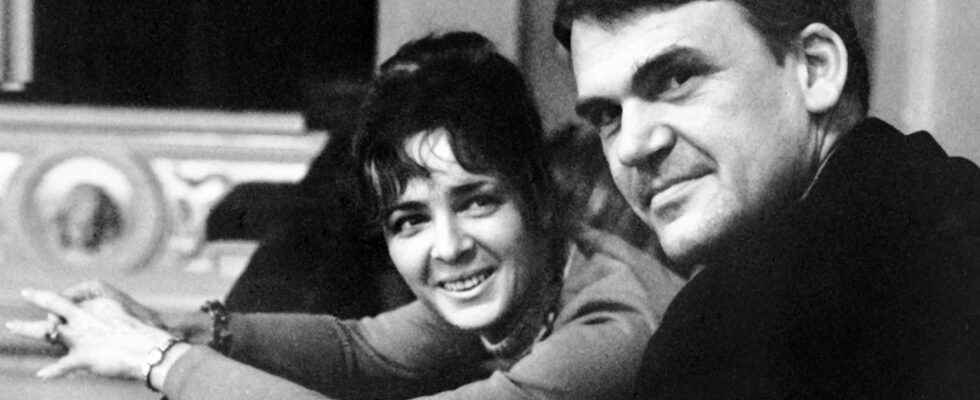He might get the Nobel Prize for Literature, or he might not. He might never have ceased to be a Czech citizen, if life had decided otherwise. He is the Parisian Milan Kundera, born on April 1, 1929 in Brno, one of our greatest (and most discreet) contemporary writers. A wonderful documentary film today retraces the turbulent life of the author of Joke and a dozen other remarkable novels, all published by Gallimard. Directed by Czech-born documentary maker Jarmila Buzkova, Milan Kundera, Odyssey of betrayed illusions teaches us as much about the personality of the novelist and playwright as about the political upheavals of the former Czechoslovakia. Historical archive footage, excerpts from the show Apostrophestestimonials from literature professors (Martin Rijek, Martine Boyer-Weinmann..), researcher (Jacques Rupnik, a time adviser to Vaclav Havel), former classmate or writer admirers (Elif Shafak, Laurent Binet) , the film, broadcast on Arte on February 8 at 10:45 p.m., offers 55 exciting minutes which should delight even those who have never read the books of the “grantauteur”.
“To whom am I attached? To God? To the fatherland? To the people? To the individual? My answer is as ridiculous as it is sincere, I am not attached to anything except the decried legacy of Cervantes…” From the begins, the tone is set: we understand that Kundera, torn between “unleashed, dreamlike and irresponsible” fantasy and “cold analysis and cruel description of reality”, is indeed the child of this 20th century Mitteleuropa century which has both given rise to the most beautiful works and experienced the worst dramas – the communist putsch of 1948, the invasion of Russian tanks in August 1968 putting an end to the Prague Spring…. Son of a family of musicians (his father was to be the first rector of the music academy in Brno), communist like his father (Milan joined the Party in 48, was expelled from it in 49 after having exhausted a minister, then reinstated …), the young Czech studied screenwriting in Prague before teaching literature in the early 1960s at the School of Cinema, the breeding ground for the future Czech New Wave.
In 1967, he published his first novel, Zert (published at the end of 1968 in France under the title Joke, with a preface by Aragon), in which he settles, with biting irony, his accounts with the Communists. After losing his job in 1969 and seeing his books withdrawn from libraries in 1972, he was allowed to return to France (his “second native country”) in 1975 where his novel Life is Elsewhere (the wanderings of an upstart apprentice poet) was a considerable success. A France that he will never leave, the death of his mother in 1984, definitively cutting the thread with his homeland – even the fall of the Wall, which arrived “too late”, in 1989, will not change anything. Farewell Waltz, The Book of Laughter and Forgetting (and his forfeiture of Czech nationality), The Unbearable Lightness of Being, Immortality, Slowness… give him worldwide notoriety. While in 2011, a rare consecration, he returned during his lifetime to La Pléiade.
Jarmila Buzkova skilfully scrolls through images and comments, avoiding none of the twists and turns of Kundera’s hectic journey: in 2008, a Czech researcher accused him of having denounced to the police in 1950 a young opponent of the communist regime, Miroslav Dvoracek. Arrested, he will undergo thirteen years of forced labor. In May 2019, the accusation collapses, even if doubts remain… Only one regret at the sight of this documentary: the current silence of Milan Kundera, who, as usual, does not appear. And keep all its gray areas.
